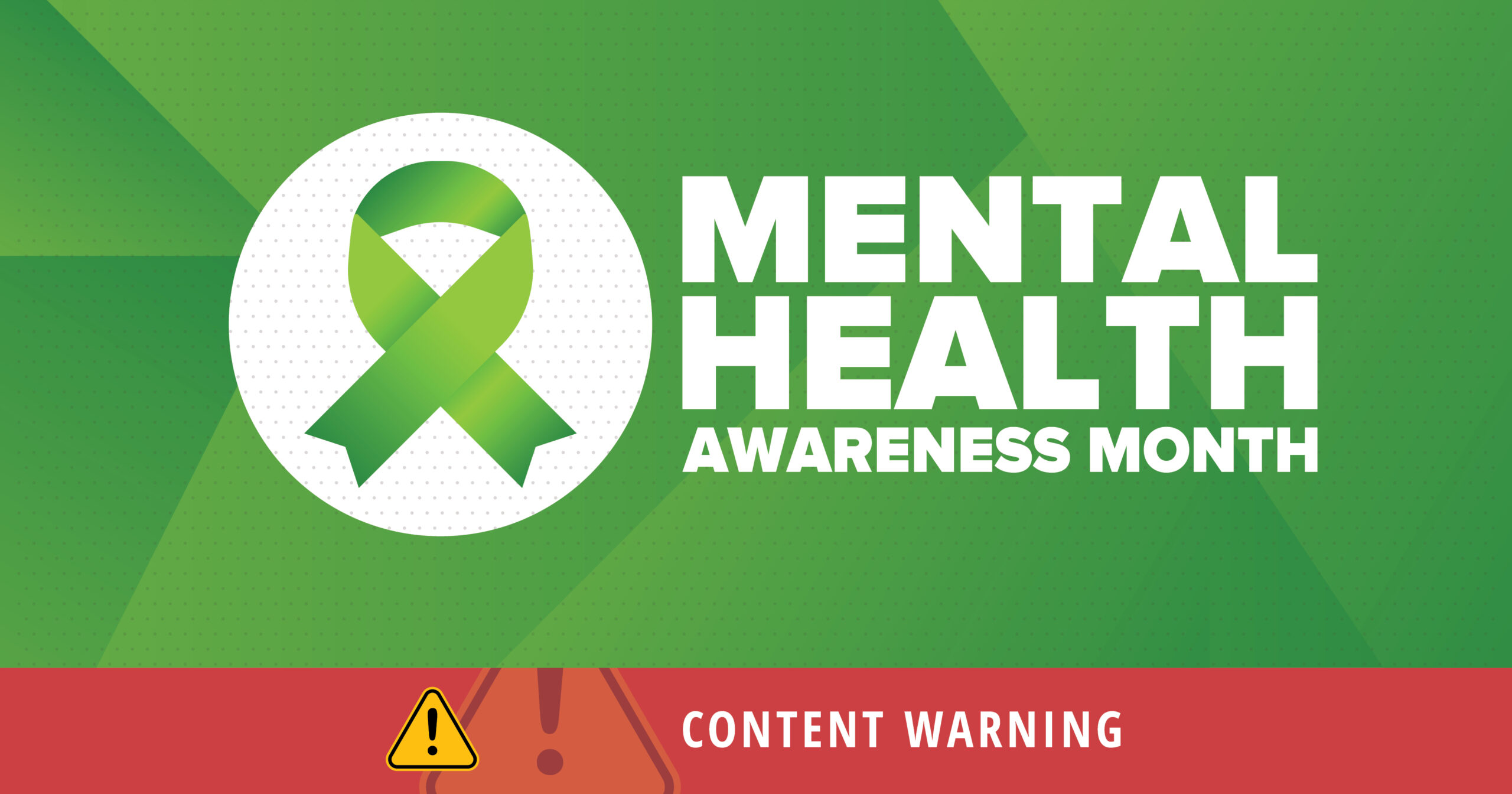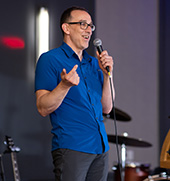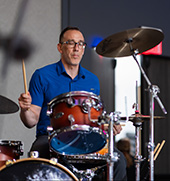Prioritizing Your Mental Health Means Asking for Help When You Need It

May 6th, 2024
In 2023, more than 50,000 Americans died by suicide, and the U.S. surgeon general called mental health the “defining health crisis of our time.”
(NBC News, Meet The Press)
Mental Health Awareness Month is observed in May each year to raise awareness about mental health issues, reduce the stigma surrounding mental illness, and promote resources for mental health support and treatment. By sharing real-life stories like the personal story shared below by Verge Manyen, Senior Mechanical Engineer at Cardiac Science, we hope to foster a greater understanding of the importance of mental health. Together, we want to offer empathy and support by providing easy access to a wide range of mental health resources for individuals living with mental illness and advocate for mental health as an essential component of your overall well-being.
Content Warning** This article contains discussions and depictions of suicide that may be triggering for some readers. If you or someone you know is struggling with suicidal thoughts, please seek help from a mental health professional, or call or text 988 to reach the Suicide and Crisis Lifeline for free, confidential support 24/7.

 Welcome to Mental Health Awareness Month. Every year at this time, I reflect on darker times in my life, and examine the path I took to where I am today as I continue on a lifelong journey toward optimizing my mental and physical health.
Welcome to Mental Health Awareness Month. Every year at this time, I reflect on darker times in my life, and examine the path I took to where I am today as I continue on a lifelong journey toward optimizing my mental and physical health.
The story of my recovery begins on January 13th of 2012, when I was driven from my doctor’s office to the emergency room in the back of a police car. I had scheduled an appointment with my doctor because I thought that I might be suffering from depression. I was given a questionnaire to fill out, and by the time I’d finished, it revealed that not only was I having suicidal thoughts, not only did I have a plan to commit suicide, but I had carried out portions of the plan on multiple occasions.
Because my doctor could not allow me to drive away from her office alone in such a state, and because I had no health insurance at that time, the police drove me to the emergency room so I could speak with a psychologist and a psychiatrist, and develop a plan that might save my life.
I’ll always remember sitting in the back of that police car driving through my town. I did not feel the shame I thought I would feel, but rather felt relief at the fact that I’d raised my hand and asked for help, and that there would be a team of professionals to help me moving forward.
Now I wasn’t alone. And the shame I thought people would attempt to place on me wasn’t there; instead, I felt empathy and compassion. That’s a revelation that changed my life forever.
Fast forward to today, and I’m no longer suicidal. Not only that, I was diagnosed not long ago as no longer suffering from depression or anxiety.
How does one go about making such a recovery?
It’s not easy, but it starts with asking for help.
From there, it’s learning, implementing, making the hard decisions and developing what I consider to be the two keys to my recovery: resilience and improvisation.
To me, resilience means being able to take what life throws at you, dust yourself off, analyze the situation to understand how this happened, implement lessons that will prevent you from taking this particular hit again, and move forward stronger than you were yesterday; unafraid, knowing that you can take what life dishes out.
And, in my mind, improvisation involves learning life skills and implementing them repetition after repetition until they are baked into your mind and body, then using whichever one is necessary in order to deal with the surprises that life throws at you.
 I do this in life, and I do it musically by playing in a guitar/drums duo called MoodTrain. We create spontaneous compositions each time we play, not knowing whatsoever what we’re about to play when we hit the stage. This has given me confidence not only when drumming, but also in my life outside of music. Just being okay with the uncertainty of life can be very powerful.
I do this in life, and I do it musically by playing in a guitar/drums duo called MoodTrain. We create spontaneous compositions each time we play, not knowing whatsoever what we’re about to play when we hit the stage. This has given me confidence not only when drumming, but also in my life outside of music. Just being okay with the uncertainty of life can be very powerful.
All these concepts and techniques were unknown to me twelve years ago, and as a result my life had become unmanageable and tenuous, holding on by a string. But therapy and the lessons I learned from it changed my life in myriad positive ways. I was able to remove myself from an abusive codependent relationship, fight for my relationship with my son, grow my career by removing the personal distractions over time, overcome depression and anxiety, become a more talented and accomplished musician, and even speak and perform at events promoting mental health awareness and suicide prevention.
Recently, a friend of mine, who founded the National Hispanic Suicide Prevention Network, asked me to write a single sentence explaining why suicide prevention is important to me. This was my response:
“Having been suicidal myself, every day I remind myself of the wonderful events that I, and others in my life, would have missed out on had I carried out my plan to completion; that is why I care about suicide prevention – it’s the wonders still to come for all of us.”
I would have missed saving lives every day by building AEDs. Or watching Damar Hamlin’s life being saved on national television by one of our devices, then later stopping by to bask in the glow of a jersey that he’s signed and that is now hanging in the hallway near my cubicle.
You’d be amazed at how far you can come if you make the hard decisions and never give up. And it all starts by asking for help.
If you are feeling distressed and need to talk to a counselor, please call 1-800-273-TALK (8255) for the National Suicide Prevention Lifeline, or you can call or text 988 for the Suicide and Crisis Lifeline.
Thanks to everyone at ZOLL for all you do to save lives every day.
Verge Manyen
Senior Mechanical Engineer
ZOLL Medical Deerfield Office
Practice Self-care
Self-care means tracking how you feel from one day to the next and knowing when you might need to seek support.
- If you are in crisis, call or text 988 to speak with someone immediately at the Suicide and Crisis Lifeline, available 24 hours a day, 7 days a week
- If you are unsure of how you feel, take a quick mental health assessment.
- Reaching out is key, whether it’s talking to a trusted friend or family member, or contacting a mental health professional.
- ZOLL offers free and confidential mental health support. Check out the Behavioral Health Postcard based on your medical coverage for a quick reference of where to go.
For more information on the National Hispanic Suicide Prevention Network, visit nhspn.org.
To listen to Verge’s musical duo, MoodTrain, select a link below:
Great Lakes Airlines, Vol. 1
Resilience
